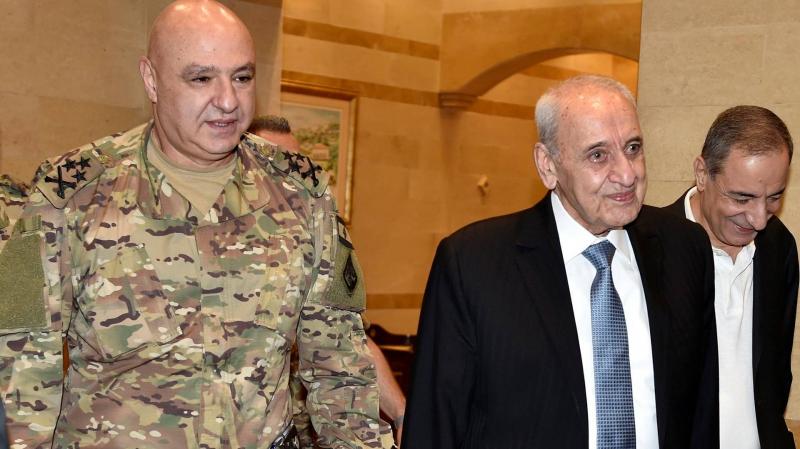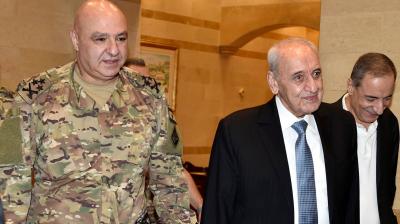The term of the Commander of the Lebanese Army, General Joseph Aoun, will end on January 10 when he retires, while the position of Chief of Staff has been vacant for over a year. The Chief of Staff is the only one capable of assuming the Commander’s duties in an acting capacity according to the clear text in Article 25 of the Defense Law. The military council, chaired by Defense Minister Maurice Sleem, is incomplete and suffers from vacancies in the positions of Inspector General of the Army and General Director of Administration. The Supreme Defense Council, which includes the Prime Minister and several ministers, is also inactive due to the absence of a President of the Republic, who alone has the right to call and preside over council sessions according to Article 49 of the Constitution.
The state today stands on "one and a half legs," as the saying goes, and it inherently cannot continue without the army, which is supported by the Lebanese people due to its significant role in maintaining stability on one hand, and because its command has succeeded in adopting military professionalism and balance in its performance and has rejected political interference in institutional affairs on the other. The source of threat to the army's status this time does not stem from internal or sectarian conflicts, but rather from the dysfunction in state management and the refusal of the relevant officials to carry out their constitutional and legal duties to prevent a vacuum in any leadership position.
In this case, it is customary that any minister failing in their duties should be referred to the Supreme Council for the Trial of Presidents and Ministers on charges of causing harm to the state's interests or conspiracy, and the Parliament is supposed to withdraw confidence from them.
The issue of commanding the army takes on significant importance at this particular stage, according to Al-Rai newspaper, because the country is going through an exceptional situation and is threatened by Israeli aggression at any moment. Additionally, the position of Commander of the Army, traditionally assigned to the Maronites, ranks second in importance after the position of the President, which is also reserved for them and has been vacant for over a year, not to mention the third position in the hierarchy, which is the governorship of the Central Bank, that has been vacant since Riad Salameh retired in early August.
These factors have prompted Maronite Patriarch Bechara Al-Rahi to raise his voice and warn against the repercussions of the vacancy reaching the position of army commander, as this would place the Maronites outside the sphere of actual influence in the crumbling state policy.
From a practical standpoint, the vacancy of the Army Commander’s position is unacceptable at this complicated political moment in Lebanon and the region. The delegation of the President's powers to the Council of Ministers, as is currently the case, cannot be embodied in the position of President as Commander-in-Chief of the Armed Forces and as Chairman of the Supreme Defense Council, as these powers are personal in nature and cannot be exercised collectively through the Cabinet. Despite the armed forces being subject to the authority of the Cabinet according to the Constitution, in this specific context, the President exercises his role as Commander of the Armed Forces in implementation of the Cabinet’s directives.
The Commander of the Army in Lebanon holds extensive powers that are not present in most army leaders in other countries, as field command in the majority of armies is vested in the Chief of Staff, while in Lebanon the Chief of Staff has an advanced administrative status but is an assistant to the Commander of the Army in military command and substitutes for him in case of any absence.
The Speaker of Parliament, Nabih Berri, who has given the government until the end of the month to resolve the dilemma if the Defense Minister refuses to perform the task, based on the principle that whoever has the authority to appoint the Army Commander has the authority to extend his term, otherwise Berri will invite Parliament to a session to approve the extension for another year. However, there are significant obstacles ahead of the session, mainly the introduction of other items on its agenda, which is rejected by several blocs.




